MercoPress. South Atlantic News Agency
Tag: Islamic State (ISIL)
-
Friday, November 27th 2015 - 12:04 UTC
Paris attacks: The terrorist strategy
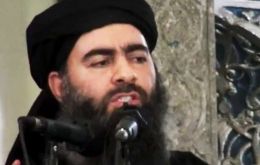
By Gwynne Dyer - As always after a major terrorist attack on the West, the right question to ask after the slaughter in Paris is: what were the strategic aims behind the attack? This requires getting your head around the concept that terrorists have rational strategies, but once you have done that the motives behind the attacks are easy to figure out. It also becomes clear that the motives have changed.
-
Friday, November 27th 2015 - 06:56 UTC
Corbyn faces shadow cabinet revolt over Cameron's proposal to bomb IS

Leader of the British opposition Jeremy Corbyn is facing a shadow cabinet revolt over his announcement that he cannot back proposals for airstrikes in Syria. It comes after David Cameron made his case for extending military action against the Islamic State saying “every day we don't take action is a day ISIL grows stronger”.
-
Saturday, November 21st 2015 - 08:30 UTC
UN Security Council authorizes “all necessary measures” to fight ISIS
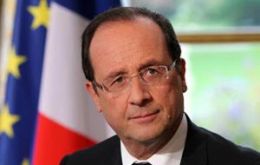
The UN Security Council on Friday (Nov 20) authorized countries to “take all necessary measures” to fight the Islamic State in Iraq and Syria (ISIS) group in a resolution that won unanimous backing a week after the Paris attacks.
-
Wednesday, November 18th 2015 - 08:33 UTC
Rousseff aware of terrorism threat since Brazil is hosting the 2016 Olympics
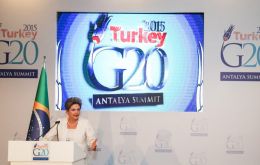
Brazilian President Dilma Rousseff said even when the country is far from the targets of the Islamic State (IS) militant group, it is not completely safe, local media reported. Rousseff commented on the recent terrorist attacks in Paris while attending the G20 Summit held in Turkey, saying that it seems that terrorist groups are more concentrated in the United States and Europe at this time.
-
Wednesday, November 18th 2015 - 07:14 UTC
France and Russia agree on an unusual alliance against the Islamic State
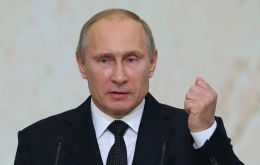
France and Russia agreed to coordinate their military and security services in an unusual alliance against Islamic State jihadists in Syria on Tuesday after a devastating attack on Paris and the bombing of a Russian plane.
-
Tuesday, November 17th 2015 - 08:18 UTC
Putin claims 40 countries fund ISIS including some members from G20
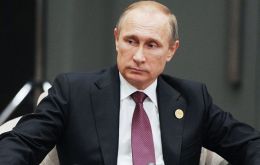
Russian President Vladimir Putin dropped a bombshell when he alleged that the dreaded Islamic State (ISIS) is being funded by 40 countries including some members of the G20 countries.
-
Tuesday, November 17th 2015 - 07:55 UTC
G20 leaders in Turkey vow to step up the fight against terrorism
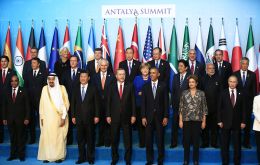
In the wake of the Paris horrific coordinated attacks, leaders from the world's top economies ended on Monday a two-day summit at a resort in Turkey with a vow to step up the fight against terrorism. The attacks that left 132 people dead and hundreds of injured shrouded the nine hours of formal talks that were already set to include discussions of terrorism and a refugee crisis stemming from the mass exodus of people from war-torn Syria.
-
Tuesday, November 17th 2015 - 07:17 UTC
Flags at half-mast on Whitehall as UK observes a minute's silence on Monday
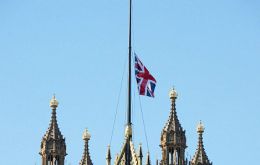
Flags fly at half-mast on Whitehall government buildings as the United Kingdom observed a minute's silence on Monday 16 November 2015. The minute's silence was held across Europe at 11am (UK time), in remembrance of those who lost their lives in the series of terrorist attacks in Paris, France.
-
Saturday, November 14th 2015 - 09:28 UTC
Night of gun and bombs attacks in Paris: at least 150 people killed
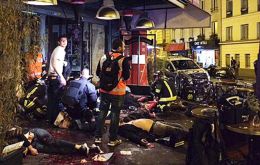
France has declared a national state of emergency and tightened borders after at least 150 people were killed in a night of gun and bomb attacks in Paris. Eighty people were reported killed after gunmen burst into the Bataclan concert hall and took dozens hostage. The siege ended when security forces stormed the building.
-
Tuesday, September 15th 2015 - 09:07 UTC
Pope warns militants could slip into Europe in the midst of the wave of refugees
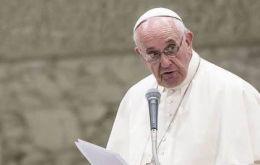
Pope Francis has warned against the risk that militants could slip into Europe under cover of a huge wave of refugees fleeing war in Syria but also said the migrant crisis could help reawaken the continent's conscience.
